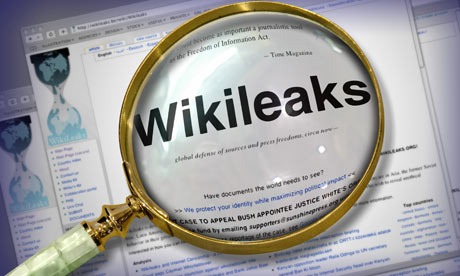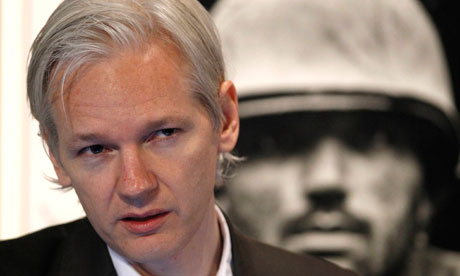
Tuesday's cross-border firefight between Israeli and Lebanese government forces might simply have been a misunderstanding. And the rockets fired from Gaza and the Israeli air strikes on the besieged border territory over the past week could be viewed as periodic blips in business as usual on that front. By the same token, last Friday's unprecedented joint visit to Beirut by the leaders of Saudi Arabia and Syria could be viewed simply as a move to stop the conflict between their Lebanese proxies from turning nasty. And British Prime Minister David Cameron's pleas to Turkey to keep open its communication channels with Israel's leaders are quotidian diplomatic common sense. Viewed in a wider context, however, each of those events could be signs of why many in the Middle East believe that despite the outward calm, the region may be on the brink of another catastrophic war.
A new report based on extensive conversations with regional decisionmakers, released Monday, Aug. 2, by the International Crisis Group, the respected mediation organization of former diplomats, warns of the possibility of war. "The situation in the Levant is ... exceptionally quiet and uniquely dangerous, both for the same reason," the Crisis Group warns. "The buildup in military forces and threats of an all-out war that would spare neither civilians nor civilian infrastructure, together with the worrisome prospect of its regionalization, are effectively deterring all sides." But while Hizballah and its regional backers, Syria and Iran, believe that the buildup in the Shi'ite militia's arsenal and capabilities is deterring Israel from launching attacks on any of them, Israel views the acquisition by Hizballah of a missile arsenal capable of raining destruction on Israeli cities as an intolerable threat. "As Hizballah's firepower grows," the Crisis Group notes, "so too does Israel's desire to tackle the problem before it is too late ... What is holding the current architecture in place is also what could rapidly bring it down." (See rare pictures of Hizballah's youth movement.)
Should a new war break out, Israel is determined to strike a devastating blow more quickly than it did during the last conflict, in which it failed in its objective of destroying Hizballah. It has publicly warned that it would destroy Lebanese civilian infrastructure and that Syria, as Hizballah's armorer, would not be off-limits. But Hizballah believes its capacity to fire missiles into Tel Aviv is key to restraining Israel from returning to finish off the Shi'ite militia. And, of course, amid regional tensions over Iran's nuclear program, members of the self-styled "axis of resistance" — Iran, Syria, Hamas and Hizballah — have deepened their alliance, raising the possibility of any one of those groups joining the fray should any of the others come under attack from Israel or the U.S. (See pictures of Israel's 2006 invasion of Lebanon.)
Although all of the main players have good reason to avoid initiating another war right now, the Crisis Group warns that "tensions are mounting with no obvious safety valve." At some point, Hizballah's growing deterrent could cross Israel's red line. And the Western diplomatic boycott of the resistance camp is cause for alarm, because there are no effective channels through which the various antagonists can be made to understand how their actions could produce unintended consequences — in the tragic tradition of Middle Eastern wars that have erupted in part because the adversaries failed to understand one another's intentions. Indeed, after proclaiming his movement's "divine victory" in standing up to Israel's 2006 offensive, a feat that made him a hero on the streets of the Arab world, Hizballah leader Sheik Hassan Nasrallah admitted that had he known Israel would respond with a full-blown invasion, he would have avoided the provocation of snatching the Israeli troops, which started the showdown. (See pictures of Israel's invasion of Gaza.)
The danger posed by the lack of communication channels between the resistance camp and the Israelis explains why British Prime Minister Cameron, a recent guest at the White House, last week went to Ankara to urge Turkey to maintain its ties with Israel and use its ties to the likes of Syria to facilitate communication that could mitigate an outbreak. Turkey has been pilloried in some quarters in the West — and certainly in Israel — for its diplomatic rapprochement with Syria, Iran and Hamas, but Cameron's appeal was a tacit admission that the continuing Bush-era policy of refusing to engage with the region's designated radicals has sharply diminished the ability of the U.S. and the European Union to influence events in the Middle East. Peace talks between Palestinian Authority President Mahmoud Abbas and the Israelis are all very well, but Abbas is not at war with Israel, nor would he be if a new round of fighting broke out in Gaza. (Comment on this story.)
Even in the besieged Palestinian territory, however, neither side is looking to restart full-blown hostilities of the type that left the territory devastated 18 months ago. The projectiles fired from the Palestinian side last week caused no casualties, and the Israeli military believes they were fired not by Hamas but by some of the smaller rival groups that occasionally challenge the cease-fire Hamas has imposed since February 2009. Some Israeli analysts suspect that Hamas may have momentarily eased up its enforcement of the cease-fire to remind the U.S. and Israel of the perils of leaving it out of the peace process. Still, although Israel targeted Hamas commanders in weekend air strikes, Israel's handling of Gaza has brought it increasing diplomatic isolation, which a new round of fighting would likely accelerate.
But the Hamas cease-fire that has largely held for the past 18 months is a unilateral one, with no clear channels of communication or agreed-upon rules of engagement, meaning that the danger of escalation is ever present. The same is true on the Israel-Lebanon border, where both sides have been preparing for the next war ever since the last one ended, neither desiring that option but both accepting it as inevitable. In the absence of any peace process by which Syria can recover the Golan Heights, occupied by Israel since the 1967 war, Syria continues to support Hizballah as its prime form of leverage against the Jewish state. The diplomatic dynamic over the past decade has also deepened Damascus' alliance with Tehran, which in turn makes Israel even more leery of engaging with the Syrians. And conventional wisdom has long held that should Iran's nuclear facilities come under attack, Hizballah's rockets would figure prominently in Tehran's retaliation plans.
So the potential triggers for a new round of hostilities have multiplied, as has the danger of them going off in sequence as a result of the ties between some of the key players. And right now, the Crisis Group warns, "there is no mechanism in place to either address or ease" those mounting tensions. Absent a political process that can credibly resolve or regulate conflicts ranging from Gaza and the Golan Heights to Iran, "the world should cross its fingers that fear of a catastrophic conflict will continue to be reason enough for the parties not to provoke one."
Read "Firefight Between Israel and Lebanon Leaves 5 Dead."
See pictures of a Hamas recruitment day.

 Listen to the Article
Listen to the Article 


 The watchdog group Fairness and accuracy in reporting (FAIR) recently published an advisory regarding the media coverage of the WikiLeaks documents. According to FAIR, less than a week after the release of the immense “Afghan war diary,” it has already been parsed and broken down to fit the various news outlets’ narratives. Washington Post columnist Anne Applebaum wrote of the content in the Wikileaks documents, “If you don’t know by now… all that means is that you don’t read the mainstream media. Which means that you don’t really want to know,” and CBS correspondent Lara Logan called for the emphasizing of Taliban atrocities of war to balance out those committed by NATO forces. It seems as though Time magazine has taken Logan’s cue. Its most recent cover features the image of an Afghan woman whose nose was cut off by Taliban members with the caption “What Happens If We Leave Afghanistan.” Perhaps most telling of all is the media’s lack of focus on leaked documents with titles like, “Afghanistan: Sustaining West European Support for the NATO-led Mission-Why Counting on Apathy Might Not Be Enough,” the product of a CIA study in how to bolster support for the war. The future of the Afghan war is at a critical point. According to a recent Gallup poll 60% of Americans believe the war is going badly and with the federal deficit grown to a mammoth 93% of GDP the general taste for war is rapidly growing bitter. With the war’s support eroding, WikiLeaks’ disclosure of over 91,000 documents will play an historic role in the future of the west’s involvement in central Asia. But the question remains: how will they be used and by whom?
The watchdog group Fairness and accuracy in reporting (FAIR) recently published an advisory regarding the media coverage of the WikiLeaks documents. According to FAIR, less than a week after the release of the immense “Afghan war diary,” it has already been parsed and broken down to fit the various news outlets’ narratives. Washington Post columnist Anne Applebaum wrote of the content in the Wikileaks documents, “If you don’t know by now… all that means is that you don’t read the mainstream media. Which means that you don’t really want to know,” and CBS correspondent Lara Logan called for the emphasizing of Taliban atrocities of war to balance out those committed by NATO forces. It seems as though Time magazine has taken Logan’s cue. Its most recent cover features the image of an Afghan woman whose nose was cut off by Taliban members with the caption “What Happens If We Leave Afghanistan.” Perhaps most telling of all is the media’s lack of focus on leaked documents with titles like, “Afghanistan: Sustaining West European Support for the NATO-led Mission-Why Counting on Apathy Might Not Be Enough,” the product of a CIA study in how to bolster support for the war. The future of the Afghan war is at a critical point. According to a recent Gallup poll 60% of Americans believe the war is going badly and with the federal deficit grown to a mammoth 93% of GDP the general taste for war is rapidly growing bitter. With the war’s support eroding, WikiLeaks’ disclosure of over 91,000 documents will play an historic role in the future of the west’s involvement in central Asia. But the question remains: how will they be used and by whom?


